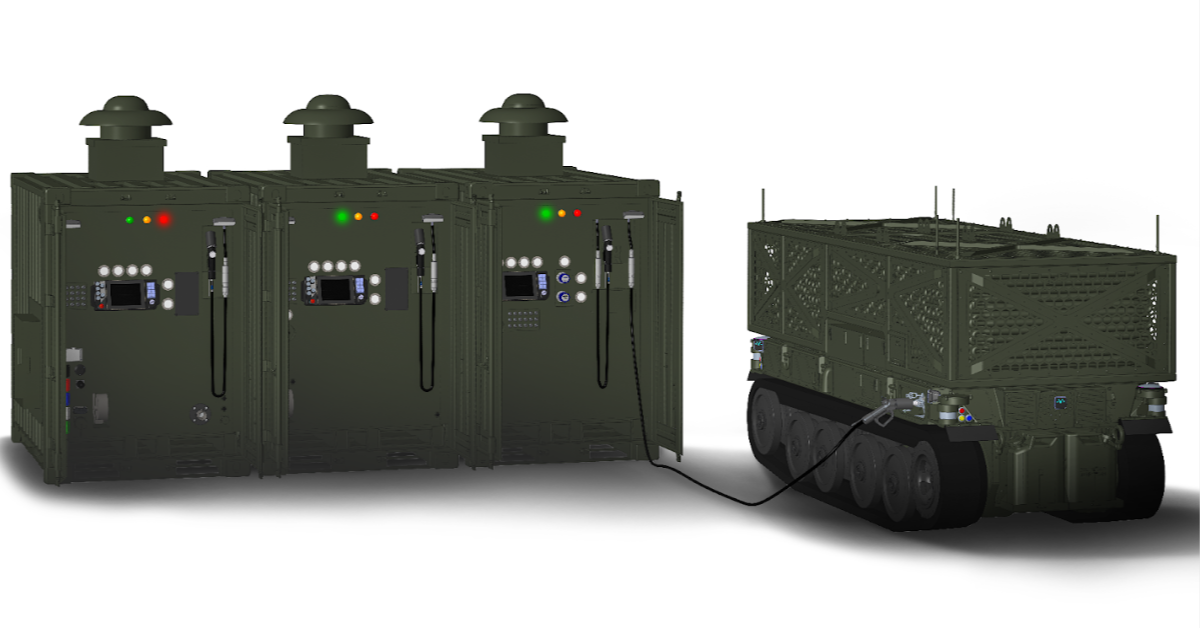Effort set to deliver containerized hydrogen generation and fueling solution to enhance energy resilience and extend operational capabilities across joint forces.
Mountain View, CA (July 29, 2025) - In support of Department of Defense strategic priorities to improve energy dominance, reduce logistical fuel supply vulnerabilities, and enable distributed operations in contested and austere environments, Defense Innovation Unit (DIU) has awarded Pratt Miller a contract to prototype their solution for the Expeditionary Hydrogen On Ship & Shore (EHOSS) project. The effort is designed to generate, store, and distribute hydrogen both aboard ship and ashore, creating a tactical “micro hydrogen supply chain” using commercial- off-the-shelf components (COTS) including data acquisition and remote monitoring capability.
Through EHOSS, DIU, in close collaboration with U.S. Indo-Pacific Command, U.S. Marine Corps Expeditionary Energy Office, Naval Research Laboratory, Naval Undersea Warfare Command, U.S. Army Ground Vehicle Systems Center, and Naval Information Warfare Center Pacific are addressing operational requirements to improve energy resilience and extend capabilities at the tactical edge.
“Hydrogen fuel cell technologies offer a pathway to reduced logistical risk and greater operational flexibility, especially in environments where conventional fuel delivery is constrained or compromised,” said DIU Energy Portfolio Director, Andrew Higier. “EHOSS is a step toward enabling persistent, low-signature operations that can help us untether from larger fuel supply chains and adapt across the maritime and littoral fight.”
As a containerized hydrogen generation, storage, and dispensing system capable of providing more than 20 kilograms of 350 bar, high-purity hydrogen daily, the system is deployable both aboard ship and ashore, enabling a self-sustaining “micro hydrogen supply chain.” Energy usage includes fuel for both cell-powered unmanned systems and a lifting gas for high altitude balloons. This multipurpose approach directly supports disaggregated and expeditionary operations by providing lower acoustic and thermal signatures, extended range, and greater energy autonomy.
“Integrating hydrogen generation into our expeditionary energy toolkit enables us to leverage the force multiplying capabilities that hydrogen-consuming technologies have to offer,” said Capt. Josh Ashley, Marine Corps Expeditionary Energy Office “EHOSS gives us the ability to fuel key capabilities without creating new logistics supply requirements that enhance flexibility and enable smaller operational footprints– attributes that directly impact dominance in distributed maritime operations.”
Pratt Miller, a wholly owned subsidiary of Oshkosh Corporation, brings deep experience in containerized hydrogen systems and defense integration. The EHOSS prototype builds on prior development and fielding of hydrogen platforms, leveraging COTS components such as Nabors Proton Exchange Membrane’ electrolyzer and advanced Flexible Power Conversion Modules allowing the system to draw power from nearly any alternating or direct current, AC/DC, source. The system will be fully instrumented to collect and measure data and remotely monitor and assess system performance and enable predictive maintenance in real time.
